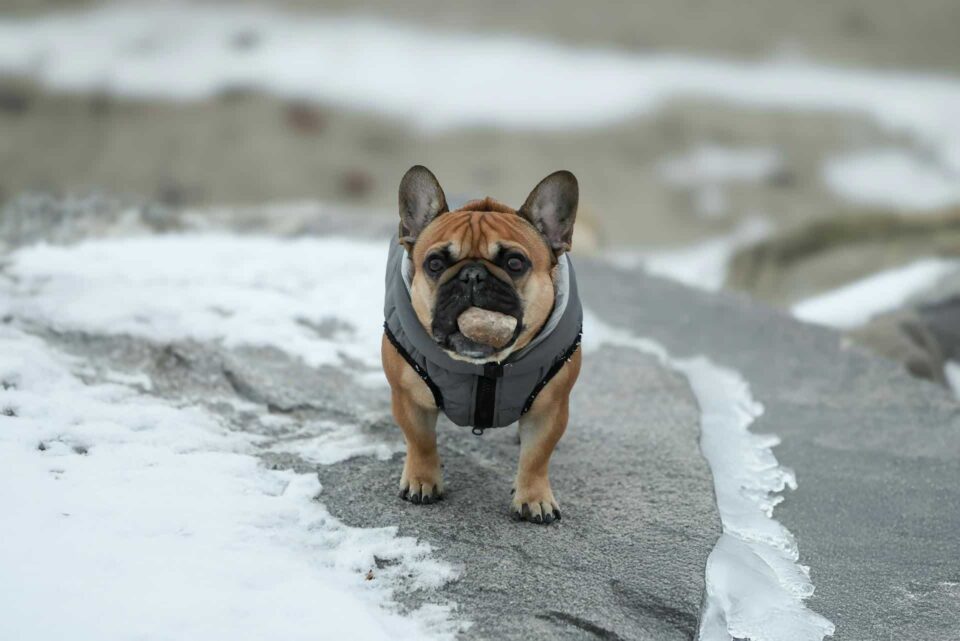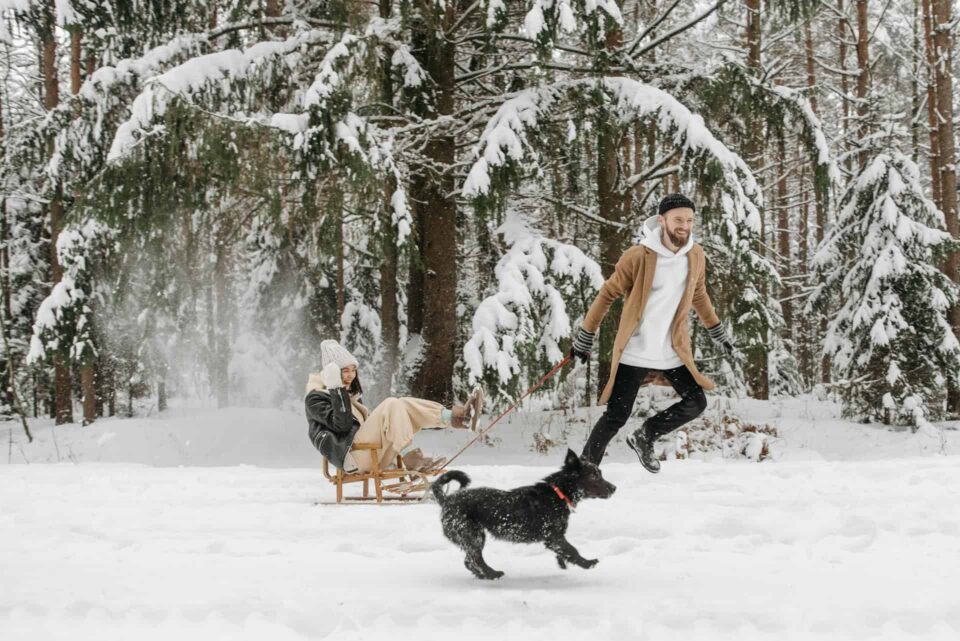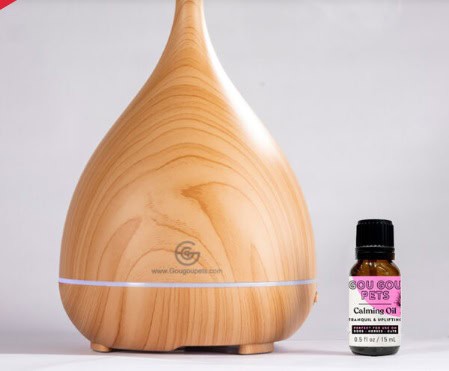Winter Blues: Can the Season Cause a Sad Dog?
When the colder months roll in, many of us feel a shift in our mood and energy. But did you know your dog might also be affected by the change in seasons?
Dogs are sensitive to environmental shifts, and shorter days combined with chilly weather can influence their behavior. Let’s dive into how the season might affect your furry friend and ways you can help.
Key Takeaways
- Dogs may experience mood changes during winter due to less sunlight and reduced activity.
- Lack of stimulation in colder months can lead to boredom or stress.
- Simple indoor activities can keep your dog happy and engaged.
- Monitoring your dog’s habits, like paw licking, can reveal seasonal discomfort.
- Products like calming oils and diffusers may help create a relaxing environment.
How Winter Affects Your Dog’s Mood
As temperatures drop and days grow shorter, your dog’s routine may change. Dogs rely on consistent schedules for comfort, and the winter season can disrupt their daily walks, playtime, and exposure to natural light. This might lead to changes in mood or behavior, such as increased lethargy or restlessness.
Dogs that are more sensitive might exhibit symptoms similar to the “winter blues” seen in humans. They may be reluctant to go outside for walks or show signs of stress when cooped up indoors.
If your dog starts to lick feet excessively after walks, it might be a sign of seasonal irritation from salt or ice.
Related: Head Shaking Dogs: Causes and Solutions
Understanding Seasonal Triggers
1. Reduced Sunlight Exposure
Dogs benefit from natural light, which can influence their circadian rhythms. Less exposure to daylight can affect their energy levels, leaving them feeling sluggish or unmotivated.
2. Colder Temperatures
Chilly weather might discourage your dog from being active outdoors. Some breeds with thin coats are especially vulnerable to the cold and may need extra layers or indoor alternatives for exercise.
3. Increased Indoor Time
Spending more time indoors can lead to boredom. Dogs thrive on mental and physical stimulation, so a lack of activities might make them restless or destructive.
4. Behavioral Changes
Have you noticed your dog won’t walk or avoids their usual outdoor routes? They could be reacting to icy conditions or discomfort from walking on cold surfaces.

Ways to Support Your Dog During Winter
1. Create an Inviting Indoor Environment
Provide cozy spaces and fun activities indoors to help your dog feel comfortable. Toys, puzzle feeders, and training games can keep them engaged and mentally stimulated during cold months.
Add blankets or beds in draft-free corners to create a warm, safe retreat. Rotating toys or introducing new ones can also keep things exciting for your dog while they spend more time indoors.
2. Stick to a Routine
Try to maintain consistent feeding, walking, and play schedules, as dogs thrive on routine. Even a brief walk during daylight hours can improve their mood and provide much-needed physical activity.
Keeping their schedule predictable helps reduce stress caused by seasonal changes. Short walks followed by indoor playtime can help them burn off energy and stay balanced during winter.
3. Monitor Their Behavior
Pay attention to unusual habits, such as if they chew paws excessively or seem hesitant to go outside. This might indicate irritation from cold surfaces, dryness, or even underlying discomfort.
Look for signs of stress or restlessness, and make adjustments to their environment or routine as needed. If any behavior persists, consulting a vet is always a good idea.
Related: Why Dogs Whine: Understanding Canine Communication
Holistic Solutions for Seasonal Stress
Using holistic pet care products can help your dog feel at ease during winter. For example, Gou Gou Pets offers Calming Essential Oils blended with naturally derived herbs and antioxidants. These can help create a tranquil environment when paired with a diffuser.
Another useful option is the Calming Spray to support your dog during stressful moments, like noisy storms or extended indoor time. Both products are made in the USA and are designed to promote a soothing atmosphere for pets.
Stay Alert to Their Needs
Each dog reacts to winter differently. Some may embrace the snow, while others shy away. If you notice your dog licking their feet after walks, consider checking for irritation from salt or ice. Washing their paws and applying soothing ointments, like Gou Gou Pets’ 3-in-1 Paw Ointment, can keep their pads healthy and moisturized.

Encouraging a Happy Winter Routine
1. Exercise Indoors
Just because it’s cold outside doesn’t mean your dog has to miss out on physical activity. Play tug-of-war, fetch in the hallway, or hide-and-seek around the house. For mental stimulation, teach your dog new tricks or engage them with interactive puzzle toys. Keeping your dog active indoors can prevent boredom and help them stay fit when outdoor play isn’t an option.
2. Dietary Adjustments
The colder months can sometimes require a little tweak in your dog’s diet. You might consider adding supplements to help maintain their energy levels and overall health.
Consult your vet to see if additional omega-3s or joint-supporting supplements could benefit your dog during winter. A well-balanced diet is essential for keeping them energetic and happy.
3. Relaxation Aids
Sometimes, even with the best indoor activities, your dog may seem uneasy during the colder months. Products like diffusers with calming essential oils can help create a soothing environment.
Adding holistic aids to your routine could be the perfect way to help your dog feel at ease throughout winter.

Gou Gou Pets’ Essential Oil Diffuser & Calming Oil is an excellent option to promote relaxation for your dog while keeping their surroundings peaceful and tranquil. This is especially helpful if your dog exhibits seasonal stress behaviors like licking their feet or acting restless.
Conclusion
Winter doesn’t have to mean a sad season for your dog. By staying mindful of their needs and creating a stimulating, cozy environment, you can ensure your furry friend stays happy and healthy year-round. Keep an eye on their behavior and consider holistic solutions to make this winter their best one yet!
~Veterinarian Recommended